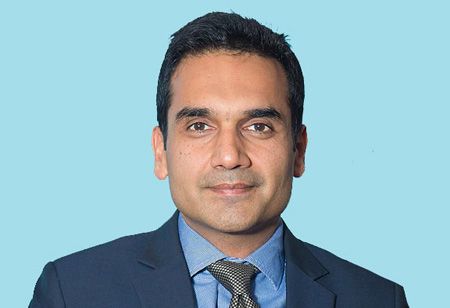Amit Mookim, CEO, Immuneel Therapeutics

Amit Mookim, CEO of Immuneel Therapeutics, shared his insights on Scale-Up Health 2025, organized by Eight Roads Ventures, discusses breakthroughs in biotechnology, value-based care, and medical innovation. Mookim is a biotech veteran with over 15 years of experience driving innovation in advanced therapies. Under his leadership, Immuneel has pioneered accessible immunotherapies and cell-based treatments in India. He has been instrumental in shaping collaborations between hospitals, insurers, and regulators to create an ecosystem that promotes both affordability and quality in advanced healthcare.
Today, ensuring innovation remains accessible is paramount. We are now able to deliver therapies like CAR-T at 5–8 percent of the cost compared to the U.S., without compromising on quality or outcomes. Currently, India’s strategic investments in local manufacturing, regulatory streamlining, and clinical expertise are creating a unique value proposition for both domestic patients and international medical tourists.
India’s ability to produce and deliver therapies at such reduced costs is rooted in several factors. Local manufacturing reduces dependence on expensive imported components, while advanced clinical protocols ensure that patient outcomes remain on par with global standards. Moreover, partnerships between hospitals, insurers, and biotech firms have enabled innovative financing and insurance models, making advanced therapies accessible to a larger population.
Mookim also emphasized the importance of data-driven care and risk-sharing models. This aligns with the broader move toward value-based care discussed at Scale-Up Health, where long-term patient health and preventive interventions take precedence over traditional fee-for-service models.
"By integrating patient data across hospitals and insurers, we can structure treatments that are outcome-focused rather than volume-focused," says Amit Mookim, CEO, Immuneel Therapeutics
Government initiatives have played a pivotal role in India’s rise as a hub for affordable, cutting-edge therapies. Incentives such as tax breaks on biotech equipment, faster regulatory approvals, and programs like Ayushman Bharat have expanded coverage for high-cost treatments. However, there is still scope to include advanced therapies under insurance schemes, which would allow even broader access for patients from diverse economic backgrounds.
Despite significant progress, challenges remain. Scaling production, ensuring equitable geographic distribution of advanced therapies, and expanding insurance coverage are ongoing hurdles. Experts at Scale-Up Health emphasized the importance of public-private partnerships, increased R&D investment, and specialized treatment centers to overcome these challenges. A clear opportunity exists for India to lead globally; however, only by continuing to invest in innovation, streamlining costs, and aligning incentives around patient outcomes can India set the standard for affordable, high-quality care worldwide.
India’s breakthrough in delivering advanced therapies at 5–8% of global costs is a testament to the country’s innovation, strategic collaboration, and commitment to accessible healthcare. Platforms like Scale-Up Health are accelerating these conversations, bringing together policymakers, healthcare providers, and innovators to ensure that India not only keeps pace with global advancements but also sets new benchmarks for affordability and accessibility. With sustained focus on innovation, collaboration, and outcome-based care, India is poised to become a global leader in making next-generation therapies accessible to all, transforming both domestic healthcare and the international medical tourism landscape.